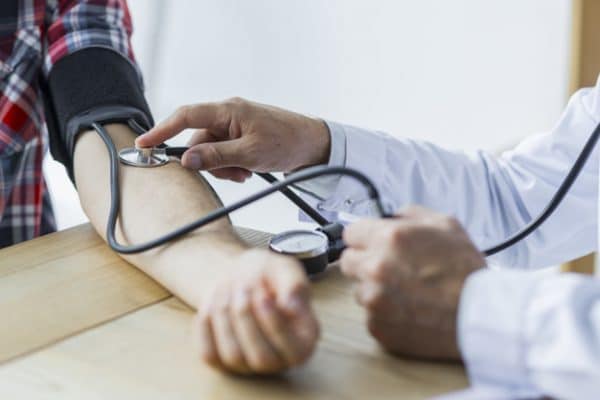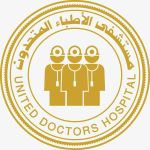
Hypertension
Hypertension
It can be determined if a patient has hypertension by a measurement result that reveals that the heart pumps a large amount of blood into narrow arteries, and it is possible that this condition occurs without symptoms, causing damage to the blood vessels and heart and may even lead to a heart attack or stroke, and hypertension is a disease that develops with time over the years.
Disease Symptoms
Most people with hypertension may not have any symptoms even if it reaches high and dangerous levels, but the most common symptoms that accompany hypertension are:
-
- Nosebleeds in case of serious, life-threatening increase in blood pressure.
Each person should have their blood pressure measured at least once every two years starting at 18 years old, and once a year starting at 35 years old, and blood pressure from both arms is measured to determine if there is a difference.
Disease Causes
Primary hypertension:
It affects adults, has no specific cause, and tends to develop gradually over the years.
Secondary hypertension
It affects adults in mysterious circumstances, appears suddenly, and causes an increase of blood pressure higher than primary hypertension, and may be due to certain conditions or drugs such as:
- Apnea caused by obstruction of the airway during sleep.
- Kidney problems.
- Adrenal tumors.
- Thyroid problems.
- Congenital defects of blood vessels.
- Cocaine drugs and their categories.
- Some medications and nutritional supplements.
- Stress and sleep deprivation.
Factors that increase the likelihood of developing the disease
The chances of developing hypertension increase with age.
- History of disease in the family.
- Overweight or obesity.
- Obesity, lack of exercise.
- Smoking any type of tobacco.
- Excess table salt (sodium) in the nutrition diet.
- Lack of potassium in the nutrition diet.
- Drinking plenty of alcohol.
- Psychological stress.
- Kidney disease, diabetes, sleep apnea.
- Sometimes pregnancy.
Complications of hypertension
Hypertension causes excessive pressure on the walls of the arteries, which may lead to damage to blood vessels, and thus damage to the organs of the body, and the more hypertension increases for long periods without intervention to control it, the greater the damage, the complications include:
- Heart attack or stroke due to atherosclerosis.
- Blood vessels expanding as a result of weak and swollen blood vessels, which can threaten the life of the individual if they burst.
- The heart may have to work harder to pump blood, causing the walls to thicken and enlarge the left ventricle, which may lead to heart failure to pump blood into the blood vessels.
- Weakness of blood vessels in the kidneys.
- Thickening of narrowed blood vessels in the eye, which may lead to vision loss.
- Metabolic syndrome (poor metabolism), which consists of an increase in waist circumference, high triglycerides, and decrease of good cholesterol.
- Increase of insulin and diabetes.
- Heart disease and strokes.
- Memory or comprehension problems.
- Narrowed or blocked arteries may reduce blood flow to the brain, leading to dementia.
Factors to reduce the risk of disease
To reduce hypertension, you should make some lifestyle changes, including:
- Eat a diet with less table salt.
- Work on increasing physical activity.
So that you maintain a healthy weight or work to lose your excess weight, and it also requires you to refrain from smoking and alcohol, and to manage stress as much as possible, and it may be very useful to practice relaxation or deep breathing slowly.
Medical Care
A person with hypertension needs medical care if he got exposed to a hypertensive attack because it can be life-threatening, and exposure to a hypertensive attack can be determined by the following symptoms:
- Severe chest pain.
- Severe headache with blurred vision.
- Nausea and vomiting.
- Extreme anxiety.
- Shortness of breath.
You need to be hospitalized for treatment using oral and intravenous medications.
When do you need medical help?
When the condition worsens, blood pressure negatively affects the organs and systems of the body, which requires the need for medical assistance continuously, and the risks caused by hypertension and need medical help include:
- Heart disease, and long-term damage to the body’s organs, so as not to end up with disability and difficulty in living or even a fatal heart attack, such as damage and narrowing of the arteries, coronary artery injury, enlarged heart (left ventricular hypertrophy of the heart) and heart failure (myocardial failure).
- Brain damage that may result in stroke, dementia, or mild cognitive disorder.
- Kidney damage that may appear in the form of kidney failure or kidney scarring because the kidneys are unable to filter waste efficiently, or aneurysm of the kidney artery.
- Eye damage, as the thin blood vessels in the eye may be damaged, leading to retinopathy, especially if the patient suffers from diabetes, he/she may lose vision at that time.
- Accumulation of fluid under the retina, which is called choroidopathy, where fluid accumulates under the retina due to the presence of leakage from a blood vessel, which impairs vision to a large extent.
- Optic neuropathy where blockage of the bloodstream may occur leading to damage to the optic nerve and killing the nerve cells of the eye leading to intraocular hemorrhage or loss of vision.
- Osteoporosis due to the increase in the amount of calcium in the urine due to excessive elimination of calcium caused by the hypertension, and sleep disorder such as obstructive sleep apnea.
How is the disease diagnosed?
Hypertension is diagnosed by measuring blood pressure using a pressure measuring device, where the first or upper number measures the pressure in the arteries when the heart beats and is called (systolic pressure), while the second or lower number measures the pressure in the arteries between beats (diastolic pressure), and blood pressure is considered normal if it is 120/80 mmHg or less, and hypertension tends to deteriorate over time, and it has several stages:
The first stage of hypertension:
- Systolic pressure from 130 to 139 mm Hg
- Diastolic pressure from 80 to 89 mm Hg
The second stage of hypertension, which is the most severe:
- Systolic pressure of 140 mm Hg or higher
- Diastolic pressure of 90 mm Hg or higher
After the age of 50, systolic pressure reading is more important, and your doctor may ask you to record your blood pressure at home at regular intervals 24 hours throughout the day and night through a daily schedule to check if you have hypertension, and might recommend doing blood and cholesterol tests, an electrocardiogram, and an echocardiogram to look for more signs of heart disease.
How is the disease treated?
- The need to pay attention to taking appropriate drug treatments as prescribed by the doctor.
- The need to make lifestyle changes in the following way:
- Diet with less table salt.
- Increased physical activity.
- Maintain a healthy weight or lose excess weight.
- Refrain from smoking and alcohol.
- Manage stress as much as possible.
- Practice relaxation or slow deep breathing.
- Evaluate the possible causes of the presence of hypertension for the patient and determine the possibility of the treatment.
- Review the other medications the patient is taking for any other condition he suffers from and recommend not taking medications that worsen blood pressure.
- The importance of monitoring blood pressure at home.
- The patient may need to change the hypertension treatments he has already taken to reach a more effective result.
References:
- King Abdullah Arabic Health Encyclopedia, 23/October/2017, Hypertension, Electronic Version available at:
- Ministry of Health, Saudi Arabia, 1439 hijri calendar, Headache, Electronic Version available at:
Additional References:
- Risk of aneurysms associated with hypertension
- Everything You Need to Know About Hypertension




